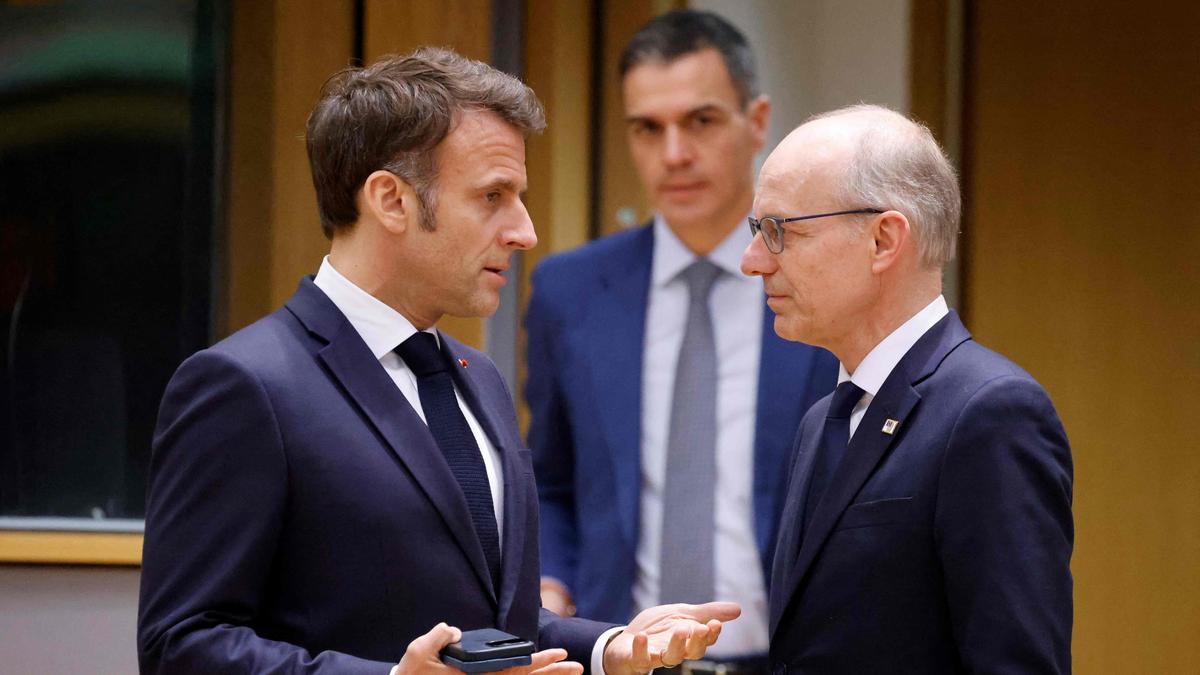Luxembourg Prime Minister Luc Frieden (CSV) has said he has seen progress in Europe’s security architecture, speaking after a summit in Paris on Thursday including 31 countries in support of Ukraine.
“Today we have defined our strategy on how we will clarify the overall issue of security in Europe in the near future,” Frieden told the Luxemburger Wort on his return from Thursday’s summit. France and the UK will take the lead in this endeavour, he said.
The broad alliance of EU states and non-member states such as the UK, Norway and Iceland share a common vision of a just peace, Frieden said. “That is why we have talked a lot today about security for the next 20 or 30 years,” the prime minister explained.
Luxembourg is part of the strong coalition for lasting peace
Luc Frieden
Prime Minister
Frieden, however, avoided the term “coalition of the willing” used by French President Emmanuel Macron, which had evoked negative connotations among some observers. The term was used to describe the alliance forged by then-US President George W. Bush during the 2003 invasion of Iraq, which violated international law. “Luxembourg is part of the strong coalition for lasting peace,” Frieden said.
Deterrence vis-à-vis the Kremlin
The entire European defence strategy must be set up in such a way “that Russia does not have the idea of attacking elsewhere in four or five years’ time,” he added.
It is the general assessment of the heads of state and government that this danger is “very real”, Frieden said. “We are also realising that Russia does not want peace at the moment, that it is constantly setting new conditions.”
Russian President Vladimir Putin has shown no real interest in peace negotiations, the PM said. Europe must therefore ensure its security in a complementary way. In Paris, he worked towards ensuring that not all alliance partners make the same military purchases, “but that we look at what one can do better than the other.”
To this end, joint operational planning will take place in the coming weeks among the appropriate ministers. Luxembourg could set the tone in the area of satellite technology, for example, Frieden suggested.
Emmanuel Macron welcoming Luc Frieden to the Paris summit © Photo credit: AFP
However, there was no agreement at the summit on the possible deployment of European armed forces to secure a possible ceasefire in Ukraine.
A British-French proposal to deploy European armed forces to secure a potential ceasefire in Ukraine was “desired by Ukraine and also supported by several EU member states, which have expressed their willingness to join in,” Macron told reporters. However, the proposal was not adopted unanimously, Macron said.
Also read:Luxembourg prepared to send troops to protect Ukraine peace, PM says
London and Paris send army chiefs to Ukraine
The chiefs of staff from France and the UK will be travelling to Ukraine in the next few days to examine the military requirements, Macron added. Ukraine has a very clear idea of the needs and critical areas in which it wants these European forces to be deployed.
The locations, number of forces and capacities would be determined in dialogue between the military leaders. “Nothing has been ruled out at this stage and we are looking at naval, air and land forces,” the French president explained.
Outgoing German Chancellor Olaf Scholz again expressed his caution about German participation in a possible peacekeeping force in Ukraine.
But Scholz did talk about further strengthening the Ukrainian armed forces. “Germany has been a leader in Europe there in recent years and will remain so,” he said. The chancellor rejected the easing of sanctions demanded by Russia, which he said would be a “serious mistake” that would “make no sense at all”. He urged Europe and the USA to adopt a common position on sanctions.
Also read:Luxembourg backed EU majority to keep Fridman on sanctions list
(This article was first published by Luxemburger Wort. Translation and editing by Duncan Roberts)
